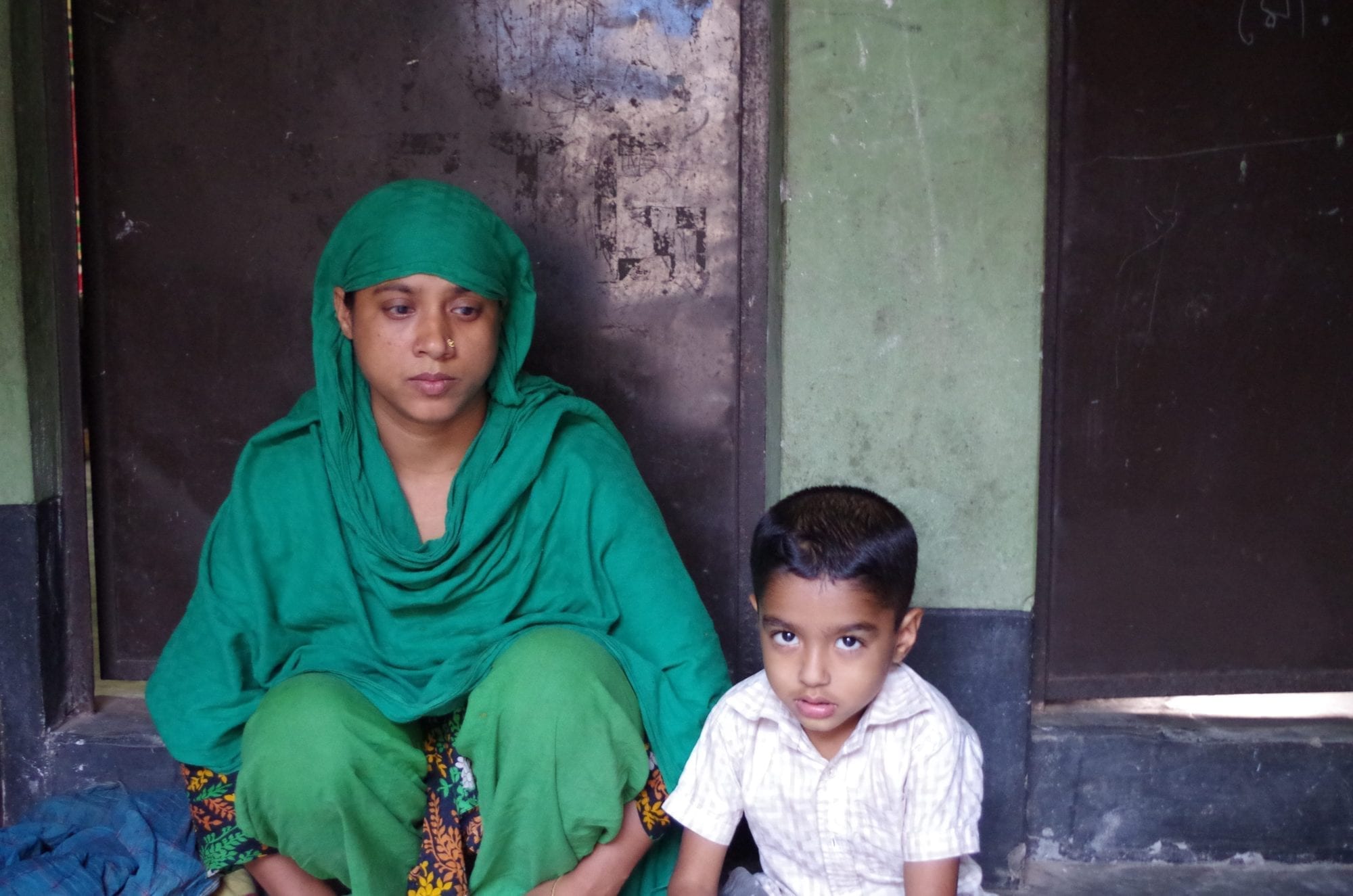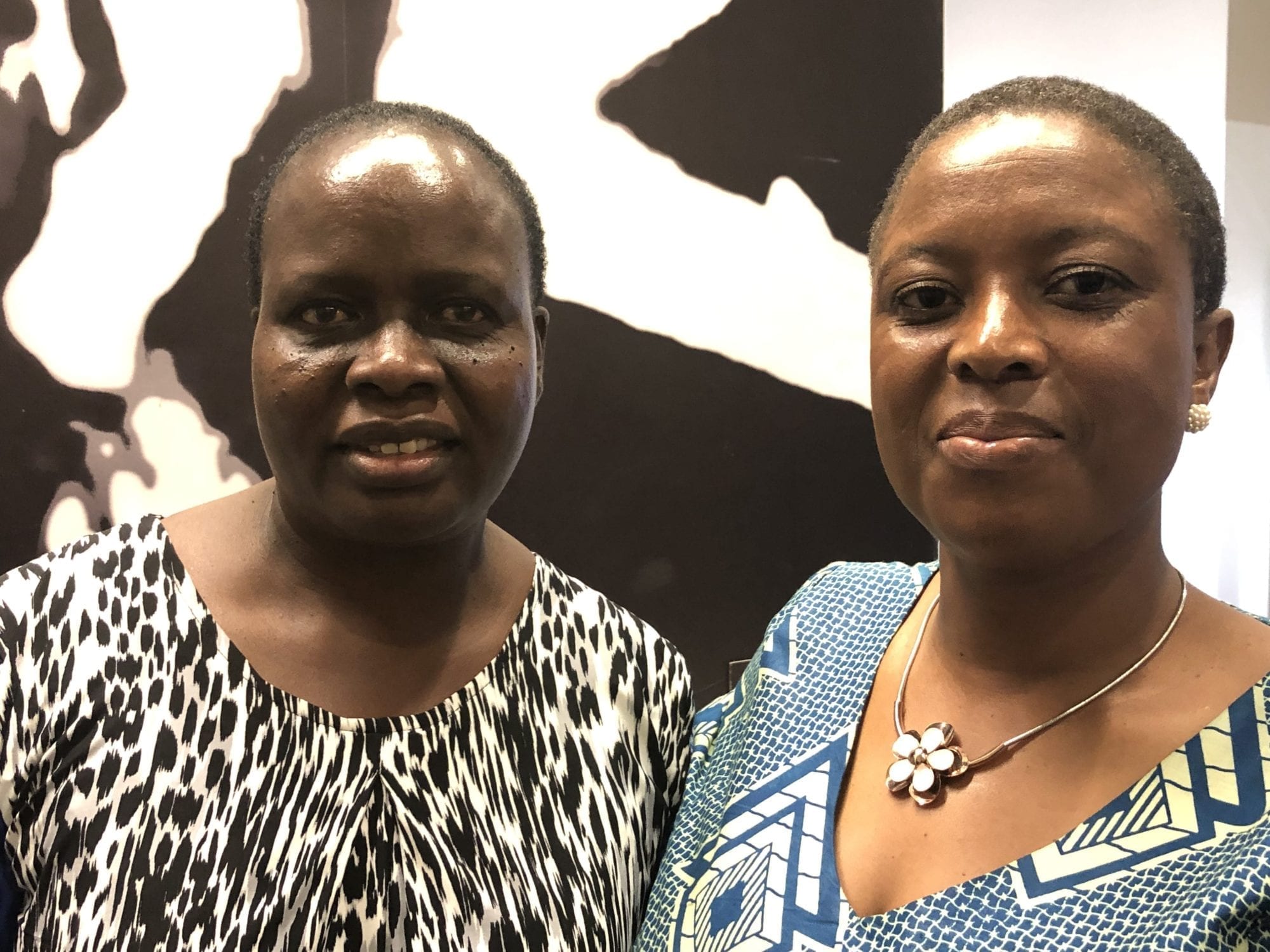On the seven-year anniversary of a deadly Bangladesh factory fire that killed 112 mostly young, female garment workers and injured more than 200 others, progress made by workers to improve their workplaces is threatened by the country’s crackdown on their right to...
IMPROVING WORKER HEALTH AND WELL-BEING THROUGH LEADERSHIP, ORGANIZING AND COLLECTIVE ACTION
Our focus on building strong trade unions would not be complete without challenging all forms of worker repression, particularly how violence against women exacerbates the inequalities they face in their workplaces and limits their ability to push for the changes they want and need.

Violence against women in the workplace causes women to leave their jobs or discourages them from entering fields where they anticipate experiencing it. Not only does this perpetuate occupational segregation and the gender pay gap, it comes at a significant cost to employers and the economy in general.
- South Africa lost an estimated 1.3 percent of the country’s GDP in 2014 due to violence against women.
- The productivity cost of sexual harassment in the Cambodian garment industry is $89 million annually.
- Violence against women and men was estimated to cost the European Union more than $32.5 billion euros in 2021.
Our approach
For nearly 30 years, we have prioritized eradicating violence against women on the job by developing grassroots strategies with women workers, their unions and women’s rights organizations.
We’ve developed multifaceted, bold programs that focus on:
- Advancing women worker leadership development through our Leadership for Unity, reNewal and Amplification (LUNA) program using a trauma-informed curriculum with our women worker partners.
- Worker rights education.
- Coalition building and grassroots movement-building and organizing.
- Using collective action to build power to bargain legally binding employer agreements that address and prevent violence against workers.
- Legal reform advocacy to hold governments accountable, including the ratification and implementation of International Labor Organization Convention 190 (C190).
These comprehensive programs are delivered across multiple sectors in more than 26 countries and cross-regionally.

Historic progress
In 2019, our Lesotho-based garment worker partners, their unions, local women’s rights groups, and international worker rights organizations negotiated groundbreaking agreements with major fashion brands and the factory owner, Nien Hsing Textiles, to end rampant violence against women at five factories.
The Lesotho Agreements represent the first instance in which brands and their suppliers entered into binding and enforceable workplace agreements to stop violence against women and men, and protect workers.
Our program in Lesotho went beyond just the bargaining table–we helped our partners craft a code of conduct and establish an independent monitoring system that, at its signing, provided more than 10,000 garment workers with access to a complaint and investigation process that can mandate consequences for perpetrators of violence against workers at Nien Hsing factories, including dismissal.
Click here to open the video in a new tab.
Ratification and implementation of Convention 190
Beginning in 2014, we were a key member of a global coalition led by our women workers partners, including global union federations and other worker rights organizations, advocating for a landmark global treaty – Convention 190 (C190) – to eliminate violence and harassment at work, including gender-based violence and harassment.
When ratified, C190 requires governments, employers and workers to come together to develop and implement solutions that will prevent and address these abuses.
The International Labor Organization adopted C190 in June 2019, and we continue to support our partners as they push for ratification by their governments, recognizing the detrimental physical and emotional health implications of violence against women, as well as the value of women in economic development.
Colombia Women’s Soccer Team Tackles Discrimination
(En Español). Vanessa Cordoba, a goalkeeper on Colombia’s women’s national soccer team, is familiar with tough challenges. But when she debated whether to join some of her teammates’ high-profile campaign to end discrimination in the women’s soccer league, she had to...
Women Worker Rights Leaders Share Hope for Future
Dynamic women worker rights leaders from across the globe offered a vision for hope, resilience and movement toward an economy and society that works for people and the planet yesterday at the event, “Building Power: Women’s Leadership in the Fight for Justice,...
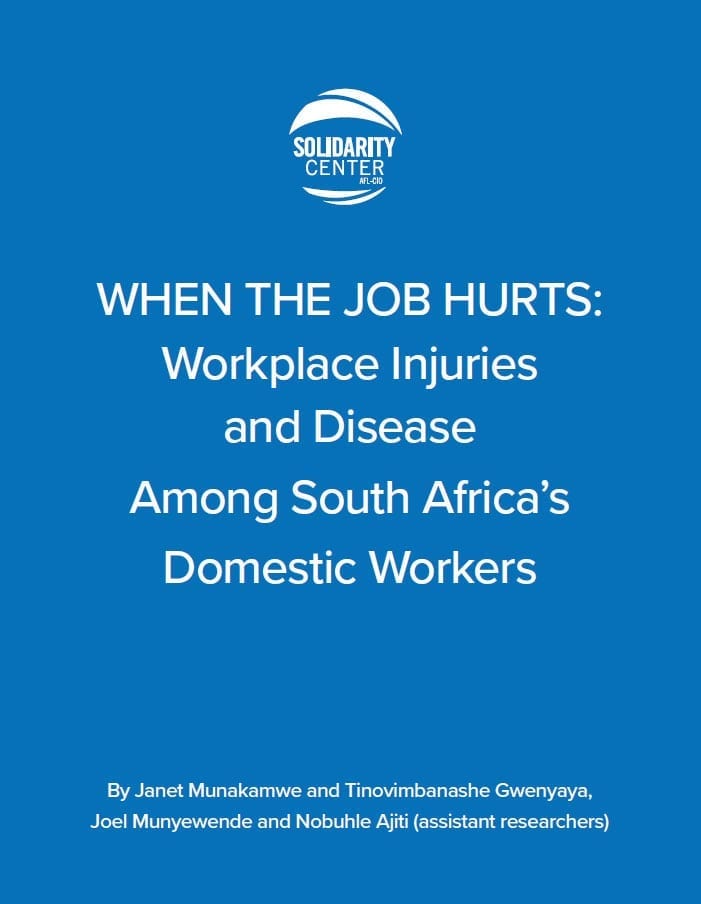
When the Job Hurts: Workplace Injury and Disease among South Africa’s Domestic Workers
Through individual case studies and legal analysis, When the Job Hurts demonstrates the need for domestic workers in South Africa to receive the same coverage under the country's job safety and health compensation law as other workers. Download report.
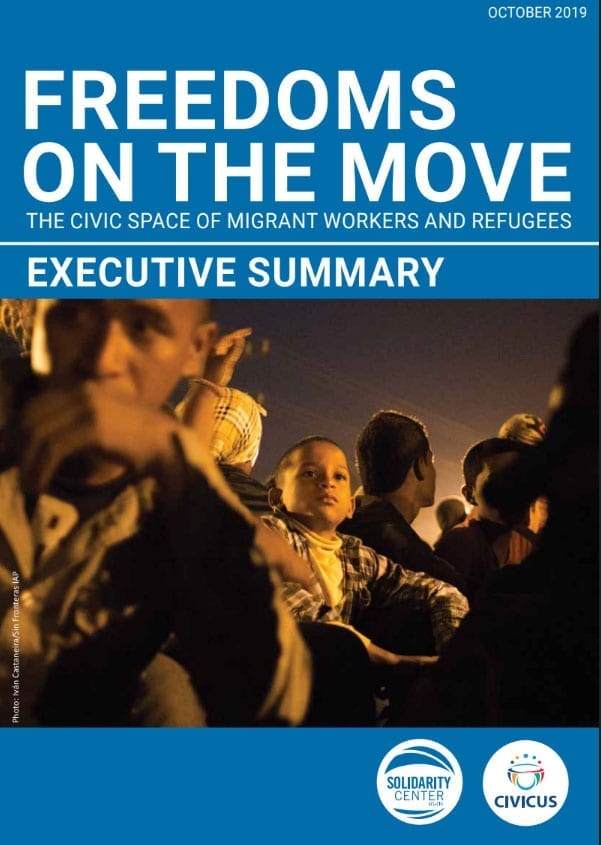
Freedoms on the Move: The Civic Space of Migrant Workers and Refugees
Freedoms on the Move, a new report by Solidarity Center and CIVICUS, makes clear that many migrant workers and refugees want to have a say in their communities and their workplaces, and in the decisions that affect their lives—and is an urgent call to action for...
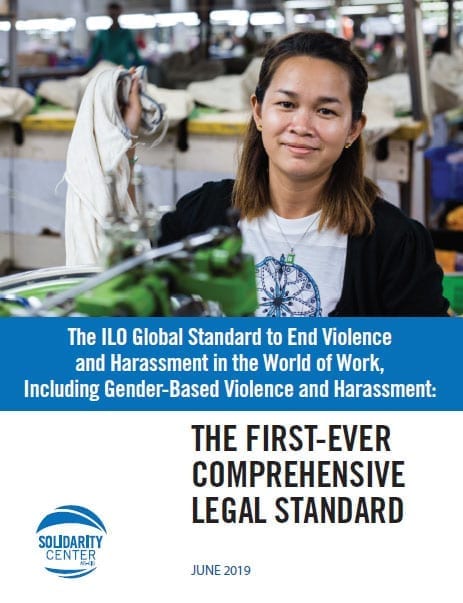
ILO GBV at Work Standard: First-Ever Comprehensive Legal Standard
A Solidarity Center legal analysis shows the proposed ILO convention on gender-based violence and harassment at work is necessary because no global binding instrument exists that comprehensively addresses violence and harassment in the world of work, including...
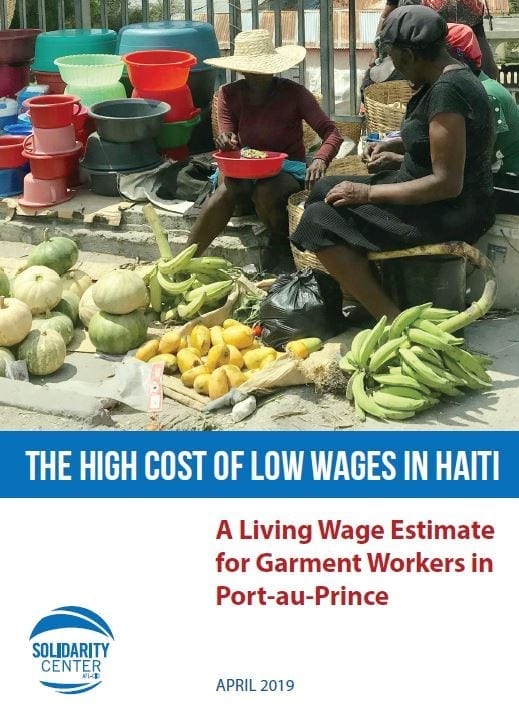
The High Cost of Low Wages in Haiti (2019)
Haitian garment workers face increasing difficulty in covering basic expenditures as prices soar while wages hover far below the cost of living. Download here in Creole. Download here in English. Download here in French.
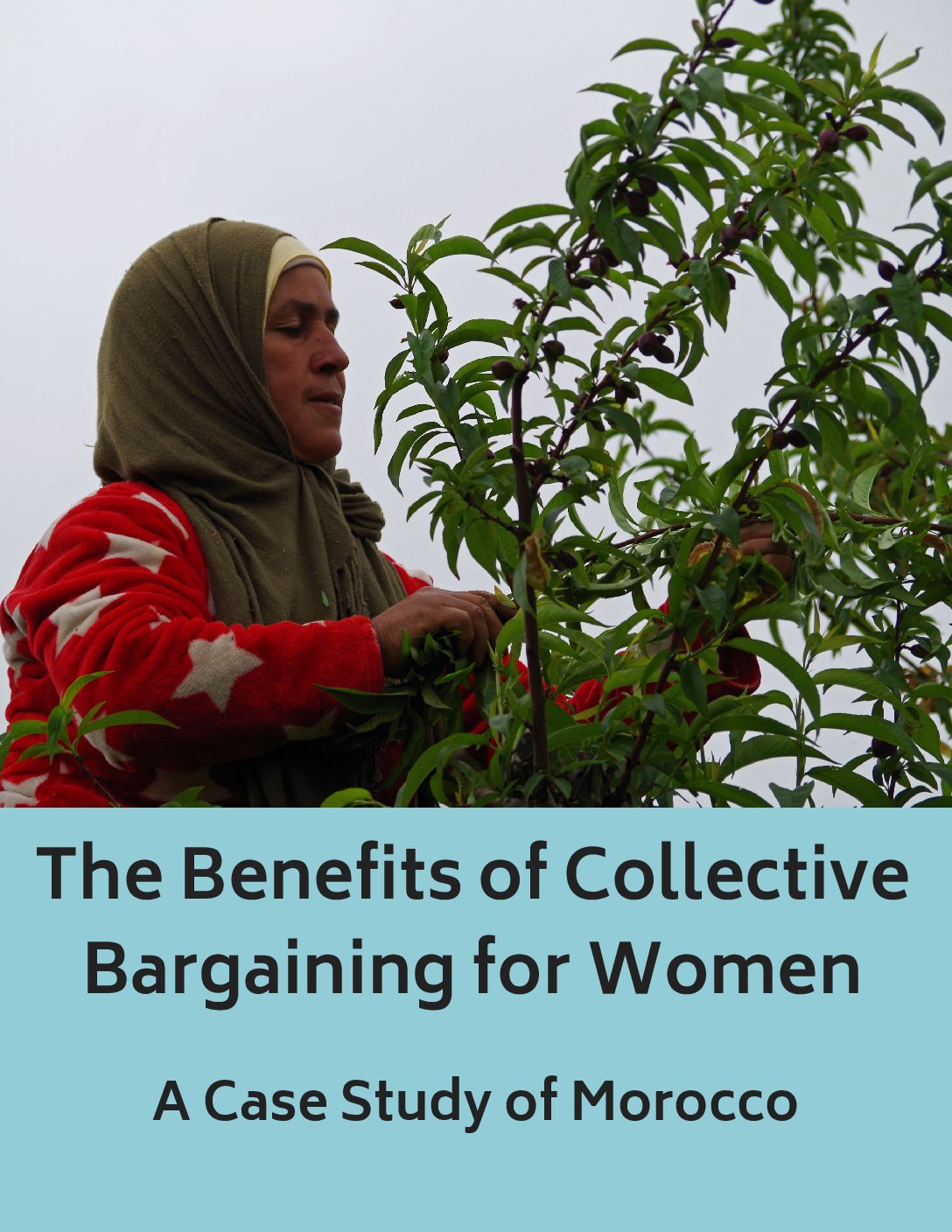
The Benefits of Collective Bargaining for Women: A Case Study of Morocco
This study by the International Center for Research on Women (ICRW) and Solidarity Center finds women workers in Morocco’s fertile Meknes region are making big gains in gender equality on the job through their union, the Confédération Démocratique du Travail (CDT)....
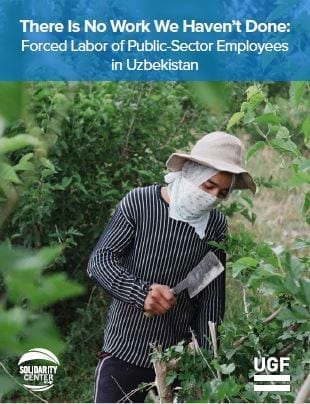
There Is No Work We Haven’t Done: Forced Labor of Public-Sector Employees in Uzbekistan
Although the government of Uzbekistan has made progress on ending child and adult forced labor in the cotton fields after more than a decade of international pressure, a new report finds that forced labor remains rampant in other arenas of Uzbek life, affecting...

